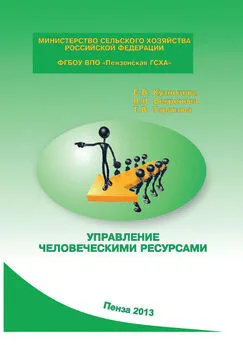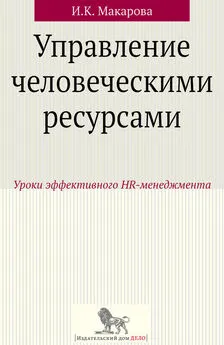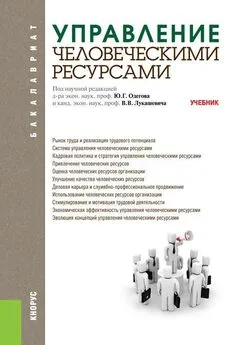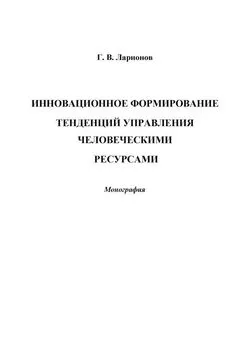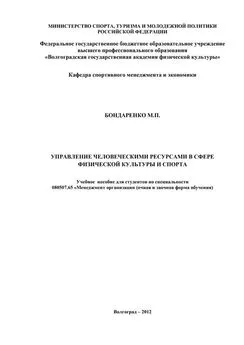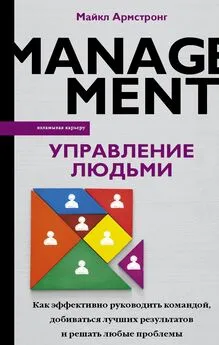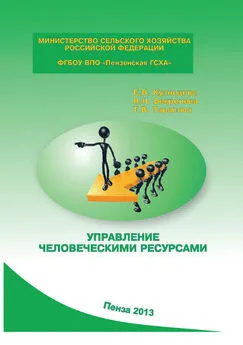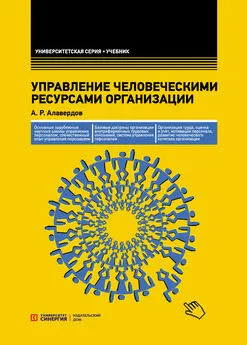Майкл Армстронг - Практика управления человеческими ресурсами
- Название:Практика управления человеческими ресурсами
- Автор:
- Жанр:
- Издательство:Издательство «Питер»046ebc0b-b024-102a-94d5-07de47c81719
- Год:2012
- Город:Санкт-Петербург
- ISBN:978-5-459-01157-9
- Рейтинг:
- Избранное:Добавить в избранное
-
Отзывы:
-
Ваша оценка:
Майкл Армстронг - Практика управления человеческими ресурсами краткое содержание
В книге всемирно известного ученого дан подробный обзор теоретических и практических основ управления человеческими ресурсами. В числе прочих рассмотрены такие вопросы, как процесс управления ЧР; работа и занятость; организационное поведение; обеспечение организации управления трудовыми ресурсами; управление показателями труда; вознаграждение.
В десятом издании материал многих глав переработан и дополнен. Это обусловлено значительным развитием УЧР: созданием теории и практики управления человеческим капиталом, повышенным вниманием к роли работников «передней линии», к вопросам разработки и внедрения стратегий УЧР, к обучению и развитию персонала. Все эти темы рассмотрены в новых или существенно переработанных главах. Также в книге приведено много реальных примеров из практики бизнеса.
Адресовано слушателям программ МВА, аспирантам, студентам старших курсов, обучающимся по управленческим специальностям, а также профессиональным менеджерам и специалистам по управлению человеческими ресурсами.
Практика управления человеческими ресурсами - читать онлайн бесплатно ознакомительный отрывок
Интервал:
Закладка:
423. Jones P., Palmer J., Whitehead D., Needham P. Prisms of performance. The Ashridge Journal, April, pp. 10–14, 1995.
424. Jones T. W. Performance management in a changing context, Human Resource Management, Fall, pp. 425–42, 1995.
425. Jung С. Psychological Types, Routledge Kegan Paul, London, 1923.
426. Juran J. N. Quality Control Handbook, McGraw-Hill, New York, 1979.
427. Kahn R. Organizational Stress, Wiley, New York, 1974.
428. Kahn-Freund О. Labour and the Law, Stevens, London, 1972.
429. Kakabadse A. The Politics of Management, Gower, Aldershot, 1983.
430. Kalleberg A. L., Loscocco К. А. Aging, values and rewards: explaining age differences in job satisfaction, American Sociological Review, 48, pp. 323– 36, 1983.
431. Kamoche К. Strategic human resource management within a resource capability view of the firm, Journal of Management Studies, 33(2), pp. 213–33, 1996.
432. Kandola R., Fullerton J. Managing the Mosaic: Diversity in action, Institute of Personnel and Development, London, 1994.
433. Kane J. S. The conceptualisation and representation of total performance effectiveness, Human Resource Management Review, Summer, pp. 123–15, 1996.
434. Kanter R. M. The Change Masters, Allen & Unwin, London, 1984.
435. Kanter R. M. When Giants Learn to Dance, Simon & Schuster, London, 1989.
436. Kaplan R. S., Norton D. P. The balanced scorecard – measures that drive performance, Harvard Business Review. January/February, pp. 71–79, 1992.
437. Kaplan R. S., Norton D. P. The Balanced Scorecard, Harvard Business School Press, Boston, MA, 1996.
438. Katz D., Kahn R. The Social Psychology of Organizations, John Wiley, New York, 1966.
439. Katzenbach J., Smith D. The Magic of Teams, Harvard Business School Press, Boston, MA, 1993.
440. Kay J. Functions of Corporate Success, Oxford University Press, Oxford, 1993.
441. Kearns P. Evaluating the ROIFrom Learning, CIPD, London, 2005a.
442. Kearns P. Human Capital Management, Reed Business Information, Sutton, Surrey, 2005b.
443. Kearns P., Miller T. Measuring the impact of training and development on the bottom line, FT Management Briefings, Pitman, London, 1997.
444. Keenoy T. HRM: a case of the wolf in sheep’s clothing, Personnel Review, 19(2), pp. 3–9, 1990a.
445. Keenoy T. HRM: rhetoric, reality and contradiction, International Journal of Human Resource Management, 1(3), pp. 363–84, 1990b.
446. Keenoy T. HRMism and the images of re-presentation, Journal of Management Studies, 4(5), pp. 825–41, 1997 .
447. Keenoy T., Anthony P. HRM: metaphor, meaning and morality, in P Blyton and P Turnbull (eds) Reassessing Human Resource Management, Sage Publications, London, 1992.
448. Keep E. Corporate training strategies, in J Storey (ed) New Perspectives on Human Resource Management, Blackwell, Oxford, 1989.
449. Kelley H. H. Attribution theory in social psychology, in D Levine (ed), Nebraska Symposium on Motivation, University of Nebraska Press, Lincoln, NB, 1967.
450. Kelly G. The Psychology of Personal Constructs, Norton, New York, 1955.
451. Kenney J., Reid M. Training Interventions, 4th ed, Institute of Personnel and Development, London, 1994.
452. Kerrin M., Kealey M. e-Recruitment: Is it delivering? Report No 402, Institute of Employment Studies, Brighton, 2003.
453. Kessels J. Knowledge productivity and the corporate curriculum, in Knowledge Management: Organisation, Competence and Methodology: Proceedings of the Fourth International ISMICK Symposium, ed J. F. Scjhreinmakers, October, 1996.
454. Kessler J., Purcell J. Performance-related pay: objectives and application, Human Resource Management Journal, 2(3), pp. 16–33, 1992.
455. Kessler S., Bayliss F. Contemporary British Industrial Relations, Macmillan, London, 1992.
456. Kessler S., Undy R. The New Employment Relationship: Examining the psychological contract, Institute of Personnel and Development, London, 1996.
457. Kettley P., Reilly P. e HR: An introduction, Report No 398, Institute of Employment Studies, Brighton, 2003.
458. Kim D. H. The link between individual and organizational learning, Shane Management Review, Fall, pp. 37–50, 1993.
459. Kirkpatrick D. L. Evaluating Training Programs, Berret-Koehler, San Francisco, 1994.
460. Kissler G. D. The new employment contract, Human Resource Management, 33(3), pp. 335–52, 1994.
461. Kochan T. A., Katz H., McKenzie R. The Transformation of American Industrial Relations, Basic Books, New York, 1986.
462. Kochan T. A., Dyer L. Managing transformational change: the role of human resource professionals, International Journal of Human Resource Management, 4(3), pp. 569–90, 1993.
463. Kodz J., Harper H., Dench S. Work-Life Balance: Beyond the rhetoric, Report No 384, Institute of Employment Studies, Brighton, 2002.
464. Kohn A. Why incentive plans cannot work, Harvard Business Review, September – October, pp. 54–63, 1993.
465. Kolb D. A., Rubin I. M., Mclntyre J. M. Organizational Psychology: An experimental approach, Prentice-Hall, Englewood Cliffs, NJ, 1974.
466. Kotter J. What leaders really do, Harvard Business Review, May/June, pp. 103–11, 1990.
467. Kotter J. J. A 20% Solution: Using rapid re-design to build tomorrow’s organization today, Wiley, New York, 1995.
468. Koys D., De Cotiis T. Inductive measures of organizational climate, Human Relations, 44, pp. 265–85, 1991.
469. Latham G., Locke R. Goal setting – a motivational technique that works, Organizational Dynamics, Autumn, pp. 68–80, 1979.
470. Latham G. P., Saari L. M., Pursell E. D., Campion M. A. The Situational interview, The Journal of Applied Psychology, 65, pp. 442–17, 1980.
471. Laurent A. The cross-cultural puzzle in international human resource management, Human Resource Management, 21, pp. 91–102, 1986.
472. Lawler E. E. Job design and employee motivation, Personnel Psychology, 22, pp. 426–35, 1969.
473. Lawler E. E. What’s wrong with point-factor job evaluation, Compensation and Benefits Review, March–April, pp. 20–28, 1986.
474. Lawler E. E. Pay for performance: making it work, Personnel, October, pp. 68– 71, 1988.
475. Lawler E. E. Strategic Pay, Jossey-Bass, San Francisco, С А, 1990.
476. Lawler E. E. Who uses skill-based pay, and why, Compensation & Benefits Review, March/April, pp. 22–26, 1993.
477. Lawrence P. R., Lorsch J. W. Developing Organizations, Addison-Wiley, Reading, MA, 1969.
478. Lawrence P. R., Lorsch J. W. Organization and Environment, Harvard University Press, Cambridge, MA, 1976.
479. Lawson P. Performance management: an overview, in The Performance Management Handbook, ed M Walters, Institute of Personnel and Development, London, 1995.
480. Leadbeater С. New Measures for the New Economy, Centre for Business Performance, London, 2000.
481. Leary-Joyce J. Becoming an Employer of Choice, CIPD, London, 2004.
482. Leavitt H. J. Some effects of certain communication patterns on group performance, Journal of Abnormal Psychology, 14(3), pp. 457–81, 1951.
483. Leblanc В. European competitiveness – some guidelines for companies, in International HRM, ed M H Albrecht, Blackwell, Oxford, 2001.
484. Legge К. Power, Innovation and Problem Solving in Personnel Management, McGraw-Hill, Maidenhead, 1978.
485. Legge К. Women in personnel management: uphill climb or downhill slide? In Spencer, A and Podmore, D (eds) Women in a Man’s World, Tavistock Publications, London, 1987.
486. Legge К. Human resource management: a critical analysis, in J Storey (ed) New Perspectives in Human Resource Management, Routledge, London, 1989.
487. Legge К. Human Resource Management; Rhetorics and Realities, Macmillan, London, 1995.
488. Legge К. The morality of HRM, in С Mabey, D Skinner and T Clark (eds) Experiencing Human Resource Management, Sage, London, (1998).
489. Lengnick-Hall С. A., Lengnick-Hall M. L. Interactive Human Resource Management and Strategic Planning, Quorum Books, Westport, CT, (1990).
490. Leventhal G. S. What should be done with equity theory?, in G. К. Gergen, M. S. Greenberg and R. H. Willis (eds) Social Exchange: Advances in theory and research, Plenum, New York, 1980.
491. Levinson D. The Seasons of Man’s Life, Knopf, New York, 1978 .
492. Lewin К. Frontiers in group dynamics, Human Relations, 1(1), pp. 5–42, 1947.
493. Lewin К. Field Theory in Social Science, Harper & Row, New York, 1951.
494. Liff S. Manpower or HR planning: what’s in a name?, in S Bach and К Sisson (eds), Personnel Management, 3rd edn, Blackwell, Oxford, 2000.
495. Likert R. New Patterns of Management, Harper & Row, New York, 1961.
496. Likert R. The Human Organization, McGraw-Hill, New York, 1967.
497. Likierman A. How to measure the performance of HRM, People Management, 11 August, pp. 44–45, 2005.
498. Littler C., Salaman G. Bravermania and beyond: recent theories of the labour process, Sociology, 16(2), pp. 215–69, 1982.
499. Litwin G. H., Stringer R. A. (1968) Motivation and Organizational Climate, Harvard University Press, Boston, MA, 1968.
500. Locke E. A. Effect of self-efficacy, goals and task strategies on task performance, Journal of Applied Psychology, 69(2), pp. 241–51, 1984.
501. London M., Beatty R. W. 360-degree feedback as competitive advantage, Human Resource Management, Summer/Fall, pp. 353–72, 1993.
502. Low J., Siesfield T. Measures that Matter, Ernst & Young, Boston, MA, (1998).
503. Luthans F., Kreitner R. Organizational Behaviour Modification, Scott-Foresman, Glenview, IL, 1975.
504. Mabey С., Salaman G. Strategic Human Resource Management, Blackwell Business, Oxford, 1995.
505. Mabey C., Skinner D., Clark T. Experiencing Human Resource Management, Sage, London, 1998.
506. McClelland D. С. Testing for competence rather than intelligence, American Psychologist, 28(1), pp. 1–14, 1973.
507. McClelland G. British Journal of Industrial Relations, June, p. 278, 1963.
508. McCrae R., Costa P. More reasons to adopt the five factor model, American Psychologist, 44, pp. 451–52, 1989.
509. MacDuffie J. P. Human resource bundles and manufacturing performance, Industrial Relations Review, 48(2), pp. 199–221, 1995.
510. McGregor D. An uneasy look at performance appraisal, Harvard Business Review, May/June, pp. 89–94, 1957.
511. McGregor D. The Human Side of Enterprise, McGraw-Hill, New York, 1960.
512. Mackay L., Torrington D. The Changing Nature of Personnel Management, Institute of Personnel Management, London, 1986.
513. McLean A. Organization Development: A case of the Emperor’s new clothes? Personnel Review, 4(1), pp. 38–46., 1981.
514. Macneil R. Relational contract: what we do and do not know, Wisconsin Eaw Review, pp. 483–525, 1985.
515. Makin P., Cooper С ., Сох С. Organizations and the Psychological Contract, BPS Books, Leicester, 1996.
516. Mangham L. L. The Politics of Organizational Change, Associated Business Press, London, 1979.
517. Mansfield В. What is «competence» all about? Competency, 6(3), pp. 24– 28, 1999.
518. Mansfield В., Mitchell L. Towards a Competent Workforce, Gower,Aldershot, 1986.
519. Mant A. The Experienced Manager, British Institute of Management, London, 1970.
520. Mant A. The psychological contract, Presentation at IPD National Conference, October, 1996.
521. Manus T. M., Graham M. D. Creating a Total Rewards Strategy, American Management Association, New York, 2003.
522. Marchington M. Joint Consultation Revisited, Glasgow University, Glasgow, 1985.
Читать дальшеИнтервал:
Закладка:

